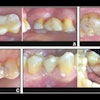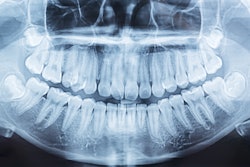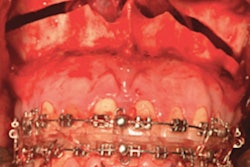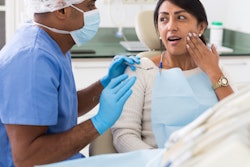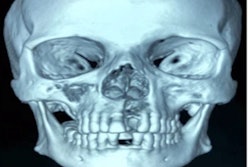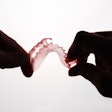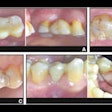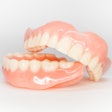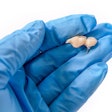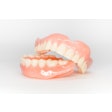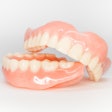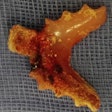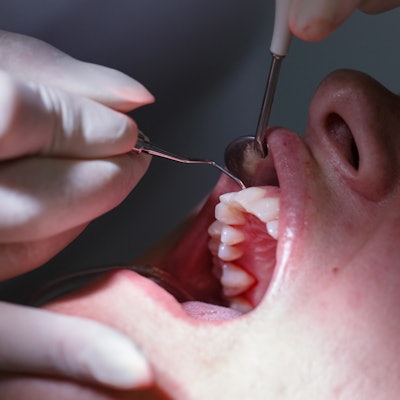
COVID-19 severity may be associated with the presence of alveolar bone loss and tooth loss, the sequela of periodontitis, according to a new study published on November 19 in Advances in Oral and Maxillofacial Surgery.
The odds of dying or being admitted to an intensive care unit were much higher in patients with alveolar bone loss, and the chances of developing more severe COVID-19 increased dramatically with tooth loss, the authors wrote.
"Dental professionals must be aware that patients with extensive tooth loss may have increased risk for more severe clinical progression and outcome of COVID-19," wrote the group, led by Dr. Marie-Chris Donders of the department of oral and maxillofacial surgery at Isala Hospital in Zwolle, the Netherlands.
During the pandemic, research has shown that several risk factors and comorbidities are associated with COVID-19. In July, a study showed that patients with periodontitis-induced inflammation may experience more severe COVID-19 complications.
Poor oral hygiene allows bacteria from the gums to enter the bloodstream and trigger inflammation, which prompts the release of the protein interleukin-6 (IL-6). Since high IL-6 levels can kill tissue, as well as the linings of blood vessels and the lungs, sources of inflammation, such as gum disease, should be eliminated to prevent complications.
In October, researchers presented data revealing that poor oral health can increase the severity of COVID-19, especially in heart patients. Delayed recovery and increased C-reactive protein levels, indicating inflammation, were linked to poor oral health.
Because the relationship between oral health and COVID-19 remains unclear, researchers continue to investigate risk factors and associations.
To explore the connection between poor oral health parameters and the severity of COVID-19, Donders and colleagues conducted a retrospective cohort study reviewing extraoral x-rays from 133 patients with confirmed COVID-19 to analyze alveolar bone loss and tooth loss. Patients included in the study had dental x-rays taken within a period of five years.
COVID-19 severity was measured using the World Health Organization's clinical progression scale that includes the following levels: mild/ambulatory, moderate/hospitalized, and severe/admitted to an intensive care unit or death. To assess associations, regression modeling was conducted, the authors wrote.
The analyses revealed a profound link between COVID-19 severity and alveolar bone loss and tooth loss. The odds of being admitted to an intensive care unit or dying were 5.6 times higher for patients with alveolar bone loss.
For each lost tooth, patients had 4.2% increased odds of developing severe COVID-19 versus a mild outcome. Additionally, per lost tooth, patients had 6% greater odds of developing severe versus moderate COVID-19.
Limitations of the study included its smaller sample size. Though it would have been ideal to have more dental records and x-rays from confirmed COVID-19 patients, it was impossible due to the rapidly developing nature of the pandemic, the authors wrote.
More studies should be conducted to better understand the relationship between poor oral health and COVID-19 severity, they wrote.
"Nevertheless, the current findings add to the wealth of research showing the relationship between oral health and general health, which is probably the result of shared risk factors and underlying conditions," Donders and colleagues concluded.



